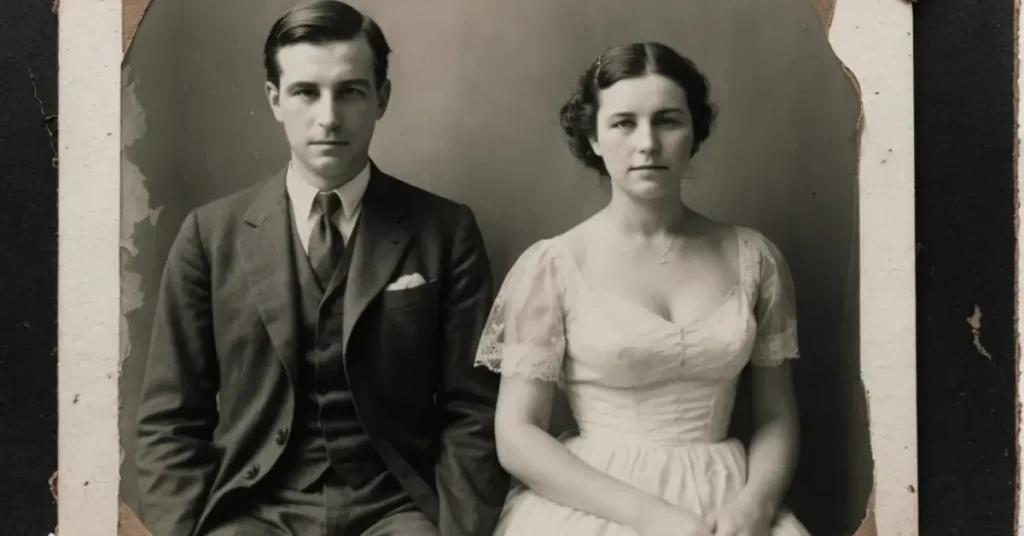
INTRODUCTION
Relationships aren’t always roses – sometimes they come with thorns in the form of bouts of loneliness. But having an honest discussion with your partner can help both of you gently remove those thorns. Today in this article, we will learn how to communicate feeling lonely in a relationship.
Understanding Loneliness in a Relationship
Feeling lonely in an otherwise loving relationship can be confusing and distressing. But it helps to recognize loneliness is a normal human emotion that most couples experience from time to time. Our complex emotions aren’t always logical. Though your partner is right by your side, inner feelings of isolation, disconnection, or longing for intimacy can still surface.
There are often practical, temporary causes underlying these sad spells. Busy schedules pulling you in different directions is one classic culprit. Or maybe special bonding moments together have grown fewer lately due to life stresses. But ignoring loneliness won’t wish it away – talking it through with empathy and care is the healthy fix.
Studies show loneliness stems from complex factors interacting within our relationships, careers, and personal lives. –
According to research published in the Journal of Social and Personal Relationships, some of the most common triggers contributing to feelings of loneliness in committed partnerships include a lack of quality bonding time together, busy schedules taking a growing toll, and a creeping sense of emotional distance despite physical togetherness.”
While fleeting loneliness may have an explainable cause, persistent lonely spells could point to deeper relational issues. But more often than not, addressing loneliness starts with open communication between two caring people committed to understanding each other fully.
With compassion and teamwork, lonely feelings don’t have to divide a couple – they can instead be an opportunity to reconnect intimately on new levels. The first step is mustering the courage to bring this sensitive topic to your partner.
Common Causes of Feeling Lonely in a Relationship
As mentioned, hectic schedules with little remaining free time can leave even the happiest of couples feeling longing for one another. Careers, family obligations, social commitments, and chores all compete for our limited hours awake each day. It’s easy for relationship bonding to fall by the wayside without intention.
Busy Schedules Taking a Toll
When conversations dwindle to brief check-ins rather than quality catching up, emotional intimacy starts to wither. A quick peck goodbye in the morning instead of a relaxed breakfast chat together breeds loneliness. Studies show couples reporting higher relationship satisfaction make time for 6-7 hours of shared activities weekly. But ambitious lifestyles often make even half that aspirational.
how to communicate feeling lonely in a relationship: Lack of Quality Time Together
Similarly, replacing date nights, weekend getaways, or lazy mornings in bed talking and cuddling with solitary TV watching or individual hobbies is relationship loneliness waiting to happen. That natural togetherness begins disintegrating without conscious effort. Boredom seeps in where the fascination with each other’s day once lived vibrantly.
Feelings of Emotional Distance
On top of practical issues, psychological or emotional distance taking root can exacerbate loneliness. Trivial arguments left unresolved, withheld affection or declining displays of care may signal a growing disconnect felt viscerally, even if its cause remains unclear on the surface.
Making Sense of Emotional Loneliness
Confusion over feeling loneliness within an available relationship stems from distinguishing emotional loneliness from mere physical solitude. Our deepest human needs include company, secure attachment, and intimate sharing. While your partner lies beside you, the emotional bank account underlying feelings of closeness and being understood can still run low without conscious maintenance of these needs.
The Difference Between Physical and Emotional Loneliness
Physical loneliness means lacking people around, but emotional loneliness involves feeling unseen, unheard, or apart from even those physically present. Needs for reassurance, affection and truly knowing and being known by another dwell more in the heart space than mere co-presence.
Why Absence Can Feel Like Rejection
When these deeper relationship needs to go chronically unmet, abandonment fears may stir unconsciously below the surface. Small actions magnify in meaning, like canceled plans feeling more weighted than intended. Over time, too many slights leave vulnerabilities raw and quick to perceive further rejection around every perceived corner.
Fears of Abandonment Getting Triggered
Understanding how unmet intimacy needs relate to primal abandonment fears brings clarity. While conscious logic knows the relationship remains, subconscious insecurities still perceive threats to the attachment. This creates a self-fulfilling cycle, where perceiving rejection breeds more emotional distancing and true loneliness.
When Loneliness Needs Addressing
With perspective on what drives emotional loneliness, discerning whether an isolated spell merits discussion or will pass naturally becomes clearer.
Signs It’s Time to Discuss Your Feelings
If feelings of loneliness persist for several weeks despite trying to restore closeness alone, that’s a telltale sign it’s deeper than a fleeting mood. Loneliness draining your day-to-day happiness or impacting other areas of life also shows it rising above normal ups and downs.
Loneliness Persisting Over Time
Isolated episodes are common and solving temporary causes like conversing more can remedy them. But prolonged, recurring loneliness suggests changes are needed from both partners to meet each others’ core needs again.
Loneliness Impacting Your Day-To-Day Mood
Severe loneliness is even correlated with higher risks of health problems like anxiety and depression if routinely experienced. Not addressing it for self-care puts your well-being at stake.
Relationship Satisfaction and Intimacy Declining
Consistently feeling closer to friends than your partner or sex life tapering off also implies loneliness potentially impacting deeper relationship pillars now. At that point, tackling its roots together becomes crucial to restoration.
Compassionate Communication
If preventing further damage means sincerely discussing the elephants in the room, mustering courage for that talk ranks high. With compassion for your partner’s viewpoint, lonely feelings need not divide but can strengthen bonds when handled sensitively.
| Step | Description |
|---|---|
| Choosing a Good Time for Discussion | Plan for a calm moment when both have time and attention to focus, preferably on a Friday date night. |
| Expressing How You Feel Without Blame | Acknowledge shared challenges, and express confidence in solving together through open communication. |
| Using “I Statements” to Share Experience | Clearly express your emotions, e.g., “I’ve been feeling lonely and sad lately, missing our closeness.” |
| Reassuring Partner It’s Not Their Fault | Acknowledge shared challenges, and express confidence in solving them together through open communication. |
Choosing a Good Time for Your Discussion
Plan your discussion for a calm moment when both have time and attention to focus. Friday date nights work better than turbulent Tuesdays after long days. Avoid casually broaching deep topics on the fly that demand focus.
Expressing How You Feel Without Blame
Start by reassuring your love and commitment. Then describe lonely feelings using “I statements” focusing just on your own experience, avoiding critical words about their behaviors specifically.
Using “I Statements” to Share Your Experience
For example, “I’ve been feeling lonely and sad lately. For me, when we’re both busy and I don’t feel seen by you, I miss that closeness.” Being direct yet kindly owned prevents defensive reactions.
Reassuring Your Partner It’s Not Their Fault
Acknowledge schedules straining you both and express confidence you’ll solve this together through open communication. Affirm still finds them wonderful to calm insecurity about “messing up”.
Finding Solutions Together. Developing a Plan as a Team
With vulnerability met by care, rebuilding what’s cracked strengthens the foundation. Brainstorming fixes as allies inspires most hope.
Suggesting Ways to Reconnect regularly
Propose scheduled quality time like casual cook-outs after busy Tuesdays to unwind together. Ask for suggestions too respecting each’s strengths and needs.
Setting Intimacy Goals to Work Towards
For example, committing to morning “catch-ups” and weekend adventures helps anticipate closeness to come. Goals with agreed check-ins sustain motivation like fitness partners.
Finding Quality Activities You Both Enjoy
Discover new experiences rekindling passion through community classes, game nights with friends, or cultural events. Experiment together playfully.
Scheduling Regular Date Nights
blocks out distraction-free evenings weekly for connecting through conversation, art, music, or cuisine. Consistency reassures.
Trying a New Couple Hobby Together
Shared interests cultivate fun while fostering partnership. Try dance lessons, a sports team, or crafting circles to bond during relaxing pursuits.
conclusion:
What If the Conversation Doesn’t Go Well? Tips for Persistence
Even with best efforts, talking remains difficult sometimes. In those rare cases:
Being Willing to Revisit the Discussion
Don’t shut down – agree to reapproach when calmer. Stonewalling breeds more loneliness, while persistence shows caring.
Seeing a Counselor if Needed to Improve Communication
A mediator’s guidance helps assert needs constructively when direct talks don’t flow. Their insights also build intimacy incrementally.
Compromising and Meeting Each Other Halfway
Healthy relationships involve giving from both sides. If discussing solutions, find a balanced approach respecting each person. Flex when possible to heal.
Accepting Differences and Finding Balance
Not every couple expression in the same way. Discuss how you give and receive affection best then meet in the middle.
With effort, any challenge can be overcome. By prioritizing understanding over being understood, loneliness loses the power to divide. With honesty and compassion, it instead deepens caring bonds to weather any storm together.
In closing, taking brave first steps to acknowledge loneliness lays a path for it to become just another opportunity to reconnect intimately as loved ones do. I hope these perspectives provide caring guidance along that journey of nurturing relationships into lush gardens that continually bloom joyfully.

A personal story
Jenna sighed as she lay in bed next to her husband David, scrolling through photos on her phone. Though he was right there, she couldn’t escape the nagging feeling of emptiness inside. She loved David deeply, yet lately, their connection seemed to be fading.
Jenna wasn’t alone in this experience. All around town, other couples were experiencing similar feelings of discontentment and isolation, even when physically together. Studies show that almost 1 in 4 people feel lonely within their relationship at some point.
For Jenna and David, it had been a gradual process. Between busy work schedules, kid’s activities, and household chores, their conversations grew more superficial. Where they once opened up about dreams and frustrations, now they barely looked up from screens by evening’s end.
Other couples struggled with new challenges like Sarah and Ben adjusting to parenthood or Megan feeling unfulfilled after quitting her job to care for her ailing mother. Life changes disrupted old routines, but without adapting communication, closeness began slipping away too.
Yet loneliness didn’t need to be the final verdict. With open and understanding dialogue, couples could reconnect. But broaching such a vulnerable topic felt scary – what if your partner didn’t care or blamed you instead?
Jenna knew keeping silent would only make things worse. She read that initiating change started by choosing the right time, like over a quiet dinner with undivided attention. It helped to acknowledge feelings without accusation, sharing “I’m feeling lonely” instead of “you never listen.” Active listening without judgment was also important, so each could be heard.
For Jenna and David, quality time doing activities they once loved, like cooking together, seemed a good start. They also agreed some responsibilities, like dividing the household workload, needed adjustment. With empathy and compromise, relationships could be strengthened once more.
It wasn’t easy but nothing worthwhile ever was. courage and community could empower couples to overcome disconnection step-by-step. For Jenna, the hope that her marriage’s happy days would return made the journey worth traveling together.
When a Man Feels Neglected in a Relationship